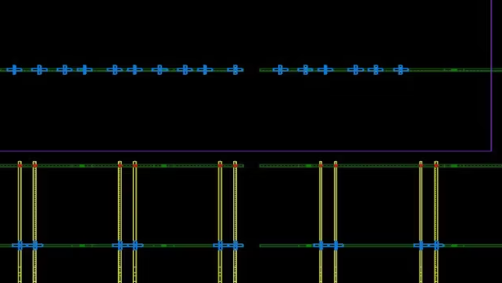New research from Rollbar, provider of real-time error monitoring Software as a Service, indicates that nearly a third (32%) of CTOs, developers, engineers and technical leads feel the most productive when they are creating better quality code – and not just more code. Nearly as many (28%) said that meeting and exceeding their managers’ expectations is what makes them feel the most productive, while more than a quarter (26%) said that productivity means delivering more new product features and services. Meanwhile, just 13% said that they equate productivity with the quantity of code they create.
This research is based on a national survey of more than 1,000 CTOs, developers, engineers and technical leads across sectors done on behalf of Rollbar by Propeller Insights in 2022.
“Coding is hard, tedious work, and it’s easy for developers to become tired of it, especially amid the uncertainties created by COVID-19 and the changing global business landscape,” said Brian Rue, CEO and co-founder at Rollbar. “But, as our research highlights, developers care deeply about code quality and meeting business objectives, and they equate their productivity to these considerations and to improving product. And 76% of survey participants said that better tools could increase their productivity. So, managers and companies must keep developers engaged with new and challenging tasks, support them with new tools to code better and faster, and create environments that nurture creativity and acknowledge that burnout is real.”
Most organizations are already working on making all of that happen. Eighty percent of the survey group said that their organization thinks about and plans its software development lifecycle. More than three-fourths (77%) of those surveyed said that their organization has people working on DevOps to help the code production, release and environment. Nearly as many (71%) said that their organization is working to improve the developer experience.
But, clearly, work still needs to be done given that 24% of survey participants said that developer burnout at their organizations is widespread or a big problem, 41% said burnout is at least somewhat of a problem, and work environment and tools figure prominently into developer productivity. More than three-fourths said that a better work environment/workflow (77%) and better tools (76%) would be very or extremely helpful to their productivity. When asked about their productivity goals, well more than half of the group (57%) said that they want to maintain code quality (fewer escaped bugs), nearly a fourth (24%) said they want to meet product/business timelines, and about a fifth (19%) said they want to release code more often.
At the very largest companies, meeting manager and team goals is more important than other factors in how they gauge productivity. Forty percent of survey respondents from companies with 20,000 or more employees said that they equate their productivity with meeting and exceeding manager and team goals and expectations. Nearly a third of this group (31%) said that productivity means delivering more new product features and services. Nearly a fourth (23%) said it means creating better code, while only 4% said it means creating more code.
In smaller companies, code quality was even more important – and the top answer for survey participants in all but one of the other business size groups. (It was a close second for businesses with 10 to 99 employees.) Nearly a third (32%) of survey respondents from businesses with 10,000 to 19,999 employees and 28% of respondents from 10 to 99 employee organizations said that productivity means creating better code quality. More than a third from 5,000-to-9,999-employee businesses (37%) and 100- to 499-employee organizations (35%) feel that way. When respondents from businesses with one to nine employees weighed in on what productivity means to them, the percentage who said creating better code jumped to 43%.
“Our research highlights what many CTOs, developers, engineers and technical leads already know: That code quality is critical, and businesses should prioritize it over quantity,” said Rue. “The survey results also point to the need for new tools to improve developer workflow and productivity. When developers have the tools and environments that they need to maximize their productivity, they tend to be happier, are less likely to suffer from burnout, and are better positioned to meet their own and their employers’ goals – creating a win-win dynamic.”
Rollbar has helped more than 5,000 customers and 23,000 paid users process more than 40 billion errors – resulting in a 9x increase in releases per year. The Continuous Code Improvement Platform is a game changer for Rollbar customers and enables developers to spend less time monitoring, investigating and debugging, and more time creating new products and features that will delight their customers. To get free access to Rollbar forever, click here.
About Rollbar
Rollbar helps developers deploy better software, faster, with solutions that identify, prioritize and resolve coding errors. Rollbar works alongside a development team’s existing tool chain to give greater coverage and insights into broken code, across the development lifecycle. Used by thousands of companies, such as Salesforce, Twilio, Uber, Twitch, Pizza Hut, Affirm and 400M+ application end users, Rollbar has won accolades for its ability to accelerate release cycles, reduce costs and improve software quality. Learn more at Rollbar or follow us @Rollbar.





